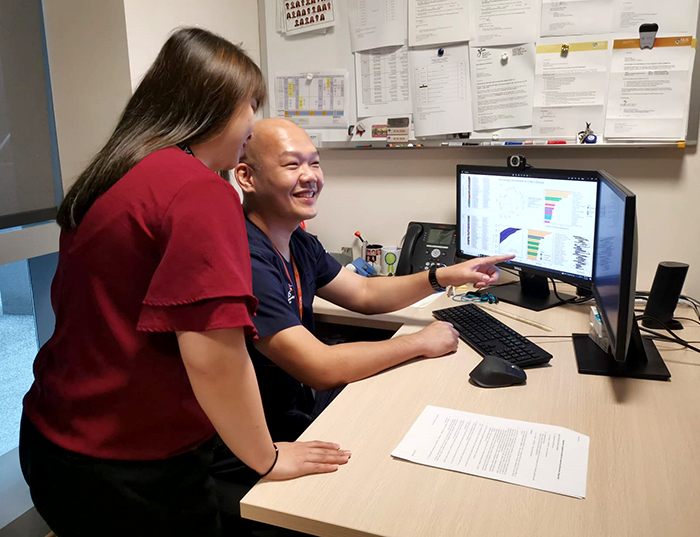Studying Oral Microbes and their Correlation to Crohn’s Disease
A recent study by the Faculty found that examining oral microorganisms could help predict the presence of Crohn’s disease among patients and further understand the illness.
Crohn’s disease is an inflammatory bowel disease (IBD) characterised by chronic inflammation of the gastrointestinal tract. It is unclear what causes Crohn’s disease, though studies have pointed to genetics, immune dysregulation and gut microbiota alterations as key factors in the development of the disease. Recently, studies have found the presence of oral microbes in the gut microbiome of IBD patients. This suggests that oral microbes may play a role in causing diseases. Although gut microbiome dysbiosis is well established in Crohn’s disease, the oral microbiome is comparatively under-studied.
Led by Dr Hu Shijia, the Faculty recently conducted a study to examine the oral microbes of Crohn’s disease patients and analyse the possible relationship between oral microbes and the illness. The study has been published in the Journal of Crohn’s and Colitis.

Sixty-five subjects participated in this cross-discipline clinical study, consisting of patients with Crohn’s disease recruited from the IBD clinic at the National University Hospital and healthy controls recruited from the National University Centre for Oral Health, Singapore.
The study found that salivary oral microbiome could be used to predict the presence of Crohn’s disease with an accuracy of over 70 per cent. This opens up the possibility of using a diagnostic test that is non-invasive and easy to conduct, compared to the traditional medical exams for Crohn’s disease, such as colonoscopy, which is invasive and exposes the patient to risks of sedation. Additionally, oral microbiomes were found to be associated with oral symptoms present in Crohn’s disease.
This was one of the first few studies conducted in conjunction with the Clinical Research Unit (CRU) at the NUS Faculty of Dentistry. The CRU was established to aid researchers by facilitating clinical research processes from ethics application, patient recruitment, and study folder management to other administrative aspects of clinical research.
“The Clinical Research Unit (CRU) was instrumental in our study ‘Oral Microbiome of Crohn’s disease Patients With and Without Oral Manifestations’,” recalled Dr Hu. “The recruitment of subjects was especially difficult for this study as they had to be age-, gender- and race-matched. Ms Ong Mei Teng, the CRU clinical research coordinator assigned to my study, worked tirelessly to help screen through hundreds of subjects to find suitable candidates. The study would not be completed without her dedication to the task.”

